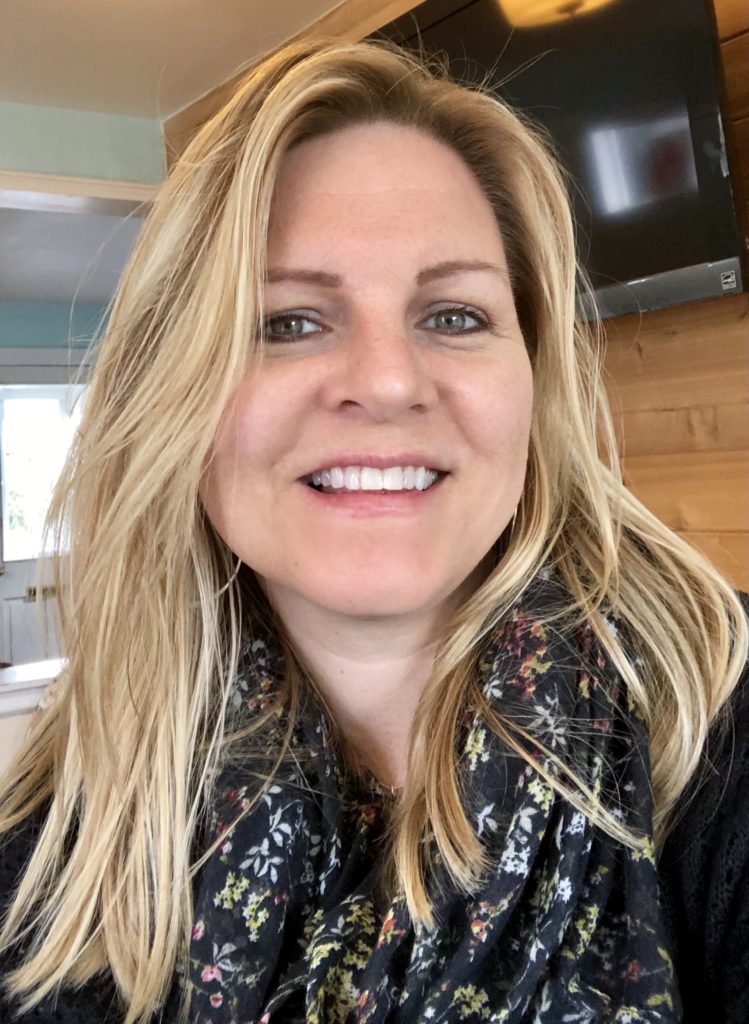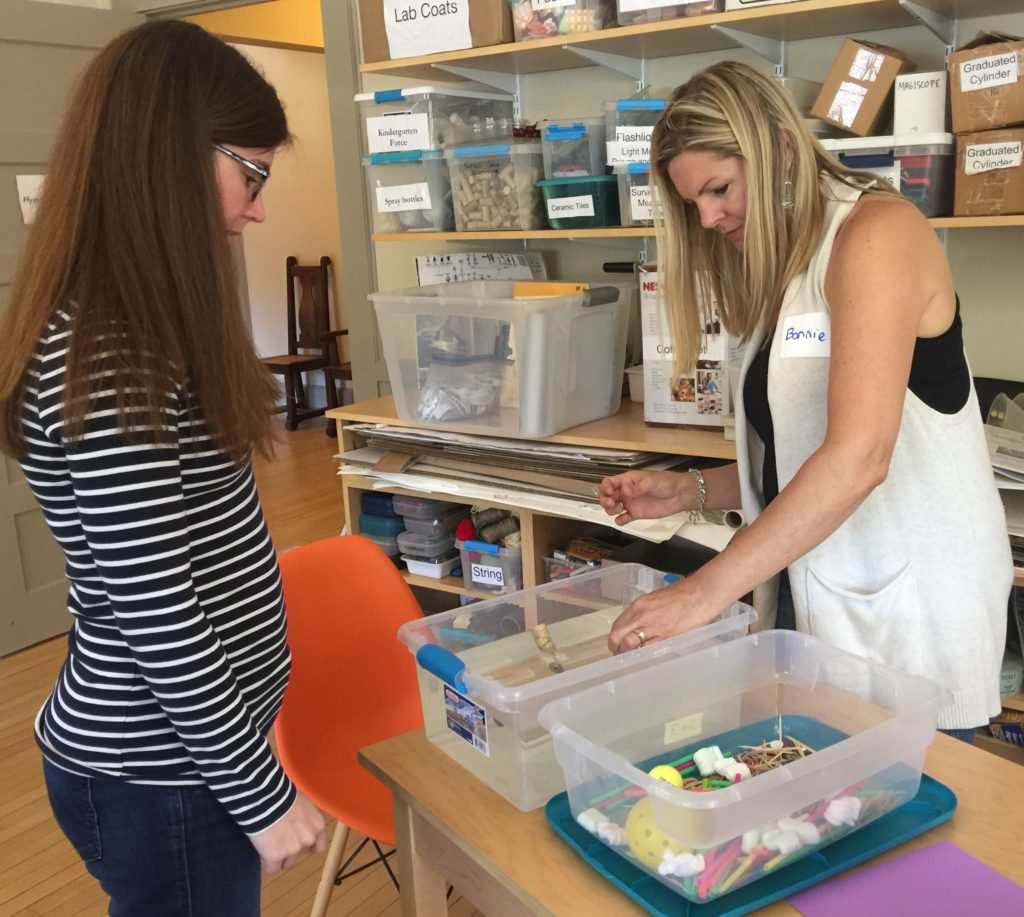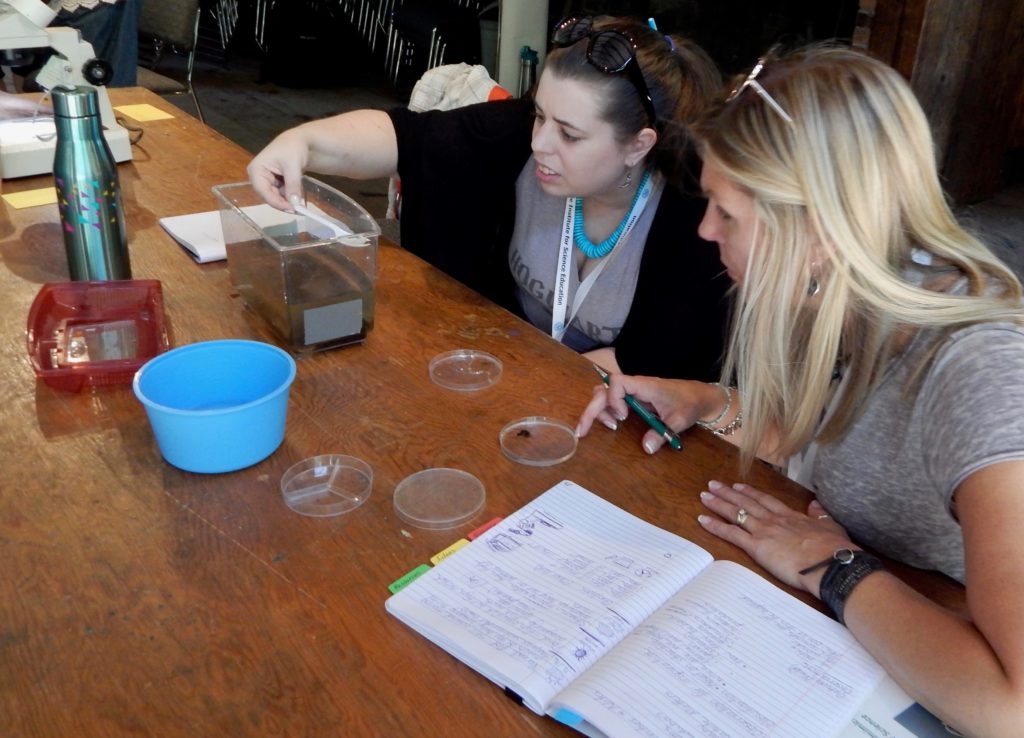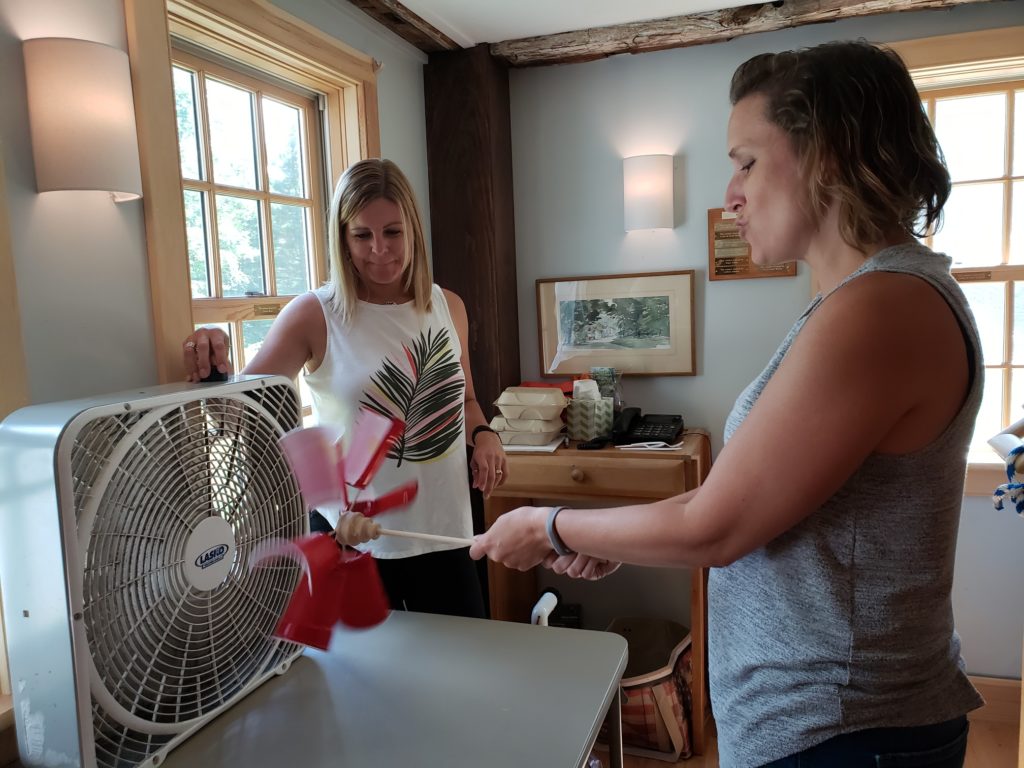Monday, July 12, 2021
For Immediate Release
Bonnie Groeber Explains the Importance
of Peers in Elementary Science Education
Great Barrington, MA – “I try to be the teacher that I needed in school,” says Bonnie Groeber, fourth grade educator at Muddy Brook Elementary School in Great Barrington, MA. Her science classes are inquiry-based and interdisciplinary in order to spark students’ natural curiosity and integrate lessons across subjects. Bonnie is quick to note how incredible her team of reading, writing, social studies, and science teachers are at collaborating to cover all the topics students need to learn in a year and that implementing an interdisciplinary approach to science learning involves many minds. “It takes a team to teach inquiry,” she says.

Photo courtesy of Bonnie Groeber
Bonnie and her colleagues at Muddy Brook Elementary School work together to design engaging activities that meet state standards, reach learning targets, and inspire students’ ownership of their own learning. They have found success in implementing collaborative, interdisciplinary, and inquiry-based units that scaffold students’ learning across disciplines. For instance, a hands-on science activity might follow-up a reading assignment that initially introduced a science topic. At the end of every school year, Bonnie and her team discuss what went well and identify areas for improvement so that they can ensure they are bringing the most engaging content to their students. “We’re pulling back scaffolding year to year and allowing kids to learn in their own ways,” she says.
Bonnie values teaching techniques that enable her students to explore science by exercising their curiosity and creativity. Her biggest personal challenge when teaching using inquiry has been to trust that learning outcomes will be still achieved when lessons are student-led. She finds that the balance between fully structured lessons that are completely teacher-led and open ended lessons that are completely student-led is delicate in the younger grades. “When science lessons are too structured, it can be a challenge for kids because they aren’t doing what’s natural for them (to explain and talk it out),” she says, “but I love it when they have flexibility!” In recognition that part of her role as an elementary science teacher is to ensure safety measures and lesson time constraints, Bonnie prefers to maintain a bit more control over investigations by using a guided inquiry approach in her classroom.

Bonnie and a colleague engage in hands-on, minds-on inquiry-based learning during a Summer Professional Development Institute
During science experiments and hands-on, minds-on, inquiry-based investigations, she has witnessed certain students emerging as leaders. “Science is so hands-on that it gives kids a chance to shine and discover their abilities,” Bonnie says. Students who struggled in other subjects seemed to be excelling in her science classroom. They appeared to appreciate that their investigation results might take a few tries to achieve and oftentimes were very willing to help their peers see the value of tweaking experiments and testing different methods. Bonnie also mentions her surprise at the shift in student attitudes when they returned to school in November of 2020 following a bout of remote learning for health safety during the COVID-19 pandemic. Her students seemed “hungry for hands-on learning” and much more engaged in science investigations than ever before. Bonnie described this mentality shift in her students as, “one small positive of the pandemic.”

Bonnie and a colleague investigate aquatic lifeforms during a Summer Professional Development Institute focused on biomimicry
Since inquiry-based and interdisciplinary approaches leave a lot of room for creativity and innovation, Bonnie is always seeking new ways of presenting science to her students. She and her team advocate for their own professional development needs as they seek to improve their science education implementation from year to year. In their commitment to building effective inquiry-based and interdisciplinary units, Bonnie and her peers have accessed hands-on, minds-on investigations and local STEM resources through multiple Wade Institute for Science Education Summer Professional Development Institutes. For Bonnie, these opportunities have been an exceptional way to become aware of local resources that she can use to help her students develop their scientific habits of mind. She comments that the hands-on activities, in person field trips, and virtual site visits engaged her in science learning from a student perspective and opened her eyes to possibilities in her community to excite her students for STEM. “I didn’t know our local colleges were so green!” Bonnie says about her trip to Brodie Mountain to see inside a wind turbine and to Williams College to learn about their Class of 1966 Environmental Center net zero building.
Excited to bring new resources back to her classroom, Bonnie reached out to local, STEAM-focused educational nonprofit Flying Cloud Institute to help her implement a wind turbine blade building investigation that she’d learned about during the Summer Professional Development Institute. She found that working with educators beyond her school held many benefits. Her students had a great time being creative in their designing of turbine blades to effectively catch the wind, and Bonnie was glad for more peer feedback beyond the ideas she had received from fellow educators involved in the institute.

Bonnie and a colleague test their wind turbine blade design during a Summer Professional Development Institute focused on sustainable energy
Bonnie now looks forward to another opportunity to enhance her inquiry-based skillset and gain ideas from peer educators during the Wade Institute for Science Education’s virtual 2021 Summer Professional Development Institute, “Landscapes on the Move: Investigating Geologic Formations and Processes.” She has already set a goal for herself for the 2021-2022 school year. She plans to incorporate new investigations from the institute into her weathering, deposition, and erosion lessons and get her students outside to observe how seasons and weather impact Monument Mountain and other landforms in their community. “We’re lucky in the Berkshires,” Bonnie says, “We’re in an area that lends itself to outdoor exploration.” She hopes that field trips to places like Monument Mountain will inspire her students to ask questions and plan investigations of their own. Who knows what creative and innovative student projects will result from Bonnie’s inquiry-based and interdisciplinary approach to science education!
###
The Wade Institute for Science Education specializes in providing inquiry-based, hands-on, minds-on, science, technology and engineering professional development for K-12 teachers and informal educators. For more information, visit www.wadeinstitutema.org or call 617-328-1515.
